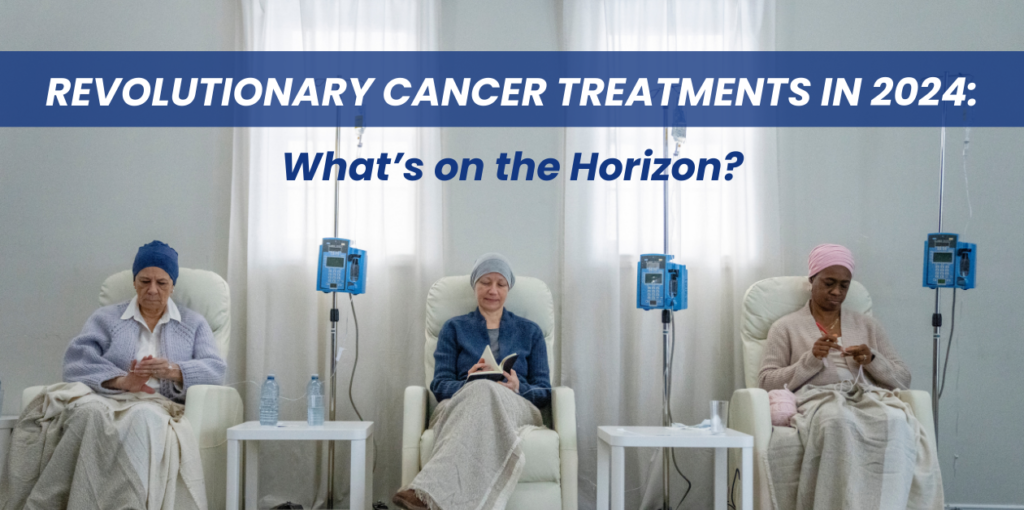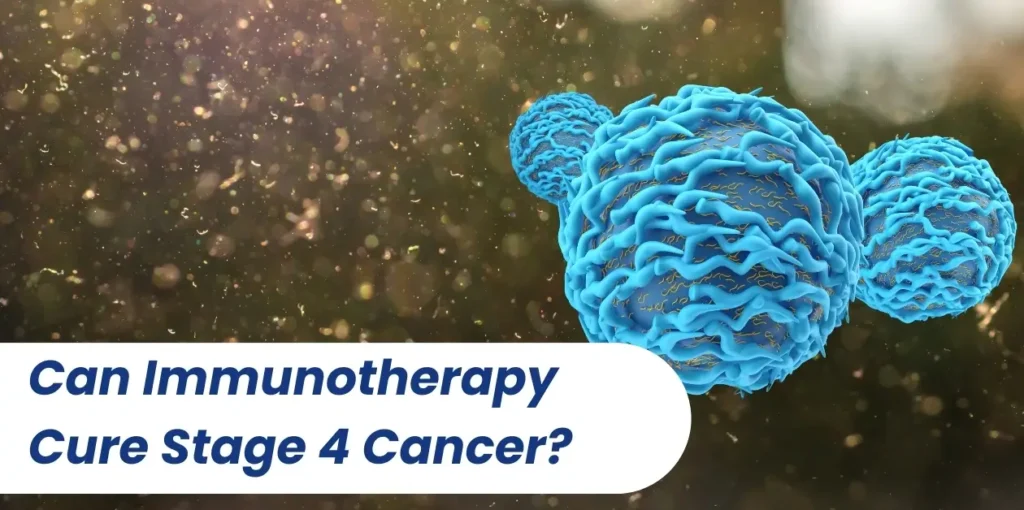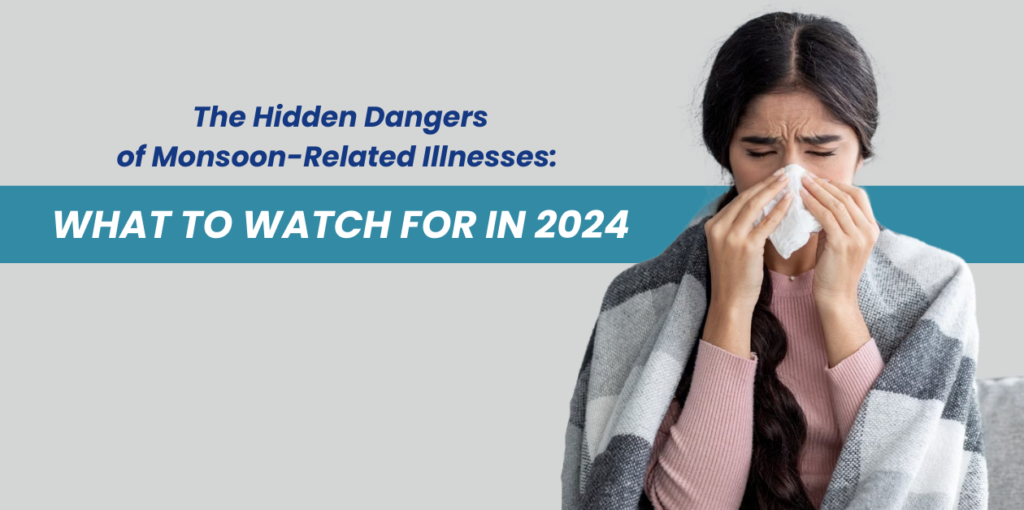Pregnancy Trends of 2024: From Preconception to Postpartum Care

Pregnancy Trends of 2024: From Preconception to Postpartum Care Pregnancy is a transformative journey, and in 2024, new trends are shaping the way women experience this phase. From preconception planning to postpartum care, this blog explores the latest approaches in prenatal care, high-risk pregnancy management, and postpartum recovery. These advancements are aimed at improving outcomes for both mothers and babies, ensuring a healthier and more informed pregnancy journey. Preconception Planning Preconception planning is essential for a healthy pregnancy. In 2024, the focus has shifted toward genetic screening and counseling, as well as optimizing health through lifestyle changes, ensuring couples are better prepared for conception. Genetic Screening and Counseling Genetic screening and counseling have become common practices in 2024. These services help couples identify potential genetic disorders before conception. With advancements in genetic testing, screenings are now more accurate and accessible, offering valuable insights and reproductive options for families. Optimizing Health A healthy pregnancy starts with preconception health optimization. This includes maintaining a balanced diet, regular physical activity, and managing chronic conditions like diabetes or hypertension. Prenatal vitamins, especially folic acid, are recommended to reduce the risk of neural tube defects. Avoiding harmful substances like tobacco and alcohol is also essential. Prenatal Care In 2024, prenatal care has advanced significantly with the introduction of cutting-edge technologies like non-invasive prenatal testing (NIPT) and telemedicine, making pregnancy safer and more accessible for expectant mothers. Non-Invasive Prenatal Testing (NIPT) NIPT has become a widely adopted technology in prenatal care. This blood test analyzes fetal DNA in the mother’s blood, detecting genetic conditions such as Down syndrome, trisomy 18, and trisomy 13 with high accuracy. NIPT poses no risk to the fetus and can be done between 10 and 13 weeks of pregnancy. Telemedicine in Prenatal Care Telemedicine is transforming prenatal care by allowing remote access to healthcare providers. Pregnant women, especially those in underserved areas, can now receive timely monitoring and consultations from the comfort of their homes. Telemedicine platforms in 2024 offer advanced features like remote fetal monitoring and digital health records, improving prenatal care outcomes. High-Risk Pregnancy Management High-risk pregnancies require specialized care to ensure the health and safety of both mother and baby. In 2024, advancements in maternal-fetal medicine, fetal surgery, and in-utero therapies are providing groundbreaking solutions for managing complex pregnancy conditions. Maternal-Fetal Medicine Maternal-fetal medicine continues to evolve in 2024 with innovations like 3D and 4D ultrasounds. These imaging technologies allow for early detection of fetal abnormalities, enabling timely interventions and better outcomes for high-risk pregnancies. Fetal Surgery and In-Utero Therapies Fetal surgery and in-utero therapies have advanced, offering hope for babies with congenital conditions. These procedures, which correct conditions like spina bifida, are now safer and more effective due to minimally invasive techniques. These innovations are improving fetal outcomes and reducing long-term complications. Postpartum Care Postpartum care in 2024 focuses on both physical recovery and mental health support. New mothers are receiving comprehensive care through mental health services, pelvic floor therapy, and personalized postpartum exercise programs. Mental Health Support Mental health support is a growing focus in postpartum care. In 2024, routine screenings for postpartum depression and anxiety are offered during check-ups, along with counseling and therapy services. Access to support groups has also become more widespread, ensuring mothers receive the emotional support they need. Pelvic Floor Therapy Pelvic floor therapy plays a crucial role in postpartum recovery. Pregnancy and childbirth can weaken the pelvic muscles, leading to issues like incontinence. In 2024, pelvic floor therapy is more accessible and widely recommended to help new mothers regain pelvic muscle strength and improve overall function. Postpartum Exercise Programs Postpartum exercise programs in 2024 are designed to help mothers recover strength and fitness at a personalized pace. These programs focus on gentle, low-impact exercises such as walking, yoga, and strength training, allowing new mothers to gradually regain their pre-pregnancy fitness levels. Conclusion Pregnancy trends in 2024 are transforming how women experience the journey from conception to postpartum care. With advancements in genetic screening, prenatal care, high-risk pregnancy management, and postpartum recovery, mothers and babies are receiving more comprehensive and personalized care than ever before. As we continue to prioritize innovation and research, pregnancy in 2024 offers a healthier, safer, and more empowering experience for women worldwide. Dr Saveetha Rathod Consultant Gynaecologist View Profile About Author Dr Saveetha Rathod MBBS ,MD – PGI , MRCOG – UK,Diploma in cosmetic Gynaecology – ICCG Dr. Saveetha Rathod is a well-known obstetrician and gynecologist in Hyderabad, known for her compassionate care and unwavering dedication to women’s health. She is deeply committed to continuous learning and growth, ensuring that each patient receives personalized and comprehensive support. Dr. Rathod’s collaborative approach and steadfast advocacy make her a trusted partner in every woman’s journey towards optimal well-being, regardless of age or background. Book an Appointment
Breaking the Taboo: Why Vaginal Health Should Be a Priority in 2024

Breaking the Taboo: Why Vaginal Health Should Be a Priority in 2024 Vaginal health is an essential aspect of women’s overall well-being, yet it remains a taboo topic for many. In 2024, it’s time to break the stigma and prioritize vaginal health. This blog discusses the importance of vaginal health, debunks common myths, and offers expert advice on prevention and care. Understanding Vaginal Health Vaginal health involves maintaining a balanced vaginal microbiome, which consists of beneficial bacteria that protect against infections. Factors such as hygiene practices, sexual activity, and hormonal changes can impact vaginal health. A healthy vaginal microbiome helps prevent infections, maintain pH balance, and support overall reproductive health Common Myths and Misconceptions There are many myths surrounding vaginal health, such as the need for douching or using scented products. In reality, these practices can disrupt the natural balance of the vaginal microbiome and lead to infections. It’s important to use gentle, unscented products and avoid unnecessary interventions Myth 1: Douching is Necessary for Cleanliness Douching is often believed to be necessary for maintaining vaginal cleanliness. However, douching can disrupt the natural balance of bacteria in the vagina, leading to infections such as bacterial vaginosis and yeast infections. The vagina is self-cleaning, and using mild, unscented soap and water to clean the external genital area is sufficient. Myth 2: Scented Products Improve Vaginal Health Scented products, such as sprays and wipes, are marketed as ways to improve vaginal health and odor. However, these products can cause irritation and disrupt the vaginal microbiome. It’s best to avoid scented products and opt for gentle, unscented options. Myth 3: Vaginal Discharge is Always a Sign of Infection Vaginal discharge is a normal part of the menstrual cycle and varies in consistency and amount. While changes in discharge can indicate an infection, not all discharge is a cause for concern. Normal discharge is usually clear or white and odorless. If you notice changes in color, odor, or consistency, it’s important to consult a healthcare provider. Preventive Measures Maintaining good vaginal health involves simple preventive measures. Wearing breathable cotton underwear, practicing safe sex, and avoiding excessive use of antibiotics can help maintain a healthy vaginal environment. Regular gynecological check-ups are also crucial for early detection and treatment of any issues Hygiene Practices Good hygiene practices are essential for maintaining vaginal health. This includes washing the external genital area with mild, unscented soap and water, avoiding douching, and changing sanitary products regularly during menstruation. Wearing breathable cotton underwear and avoiding tight-fitting clothing can also help prevent irritation and infections Safe Sex Practices Practicing safe sex is important for preventing sexually transmitted infections (STIs) that can affect vaginal health. Using condoms and dental dams during sexual activity can reduce the risk of STIs. Regular STI screenings and open communication with sexual partners about sexual health are also important. Antibiotic Use While antibiotics are necessary for treating bacterial infections, overuse can disrupt the vaginal microbiome and lead to infections such as yeast infections. It’s important to use antibiotics only when prescribed by a healthcare provider and to complete the full course of treatment. Expert Advice on Vaginal Care Healthcare professionals recommend using mild, unscented soaps for cleaning the external genital area and avoiding douching. Staying hydrated, eating a balanced diet, and managing stress are also important for overall vaginal health. If you experience any unusual symptoms, such as itching, burning, or unusual discharge, consult a healthcare provider promptly. Diet and Hydration A balanced diet rich in fruits, vegetables, whole grains, and lean proteins supports overall health, including vaginal health. Staying hydrated helps maintain the body’s natural balance and supports the function of the vaginal mucosa. Probiotic-rich foods, such as yogurt and fermented foods, can also support a healthy vaginal microbiome. Diet and Hydration A balanced diet rich in fruits, vegetables, whole grains, and lean proteins supports overall health, including vaginal health. Staying hydrated helps maintain the body’s natural balance and supports the function of the vaginal mucosa. Probiotic-rich foods, such as yogurt and fermented foods, can also support a healthy vaginal microbiome. Stress Management Chronic stress can impact overall health, including vaginal health. Practicing stress management techniques, such as mindfulness, meditation, and regular physical activity, can help reduce stress and support overall well-being. Ensuring adequate sleep and maintaining a healthy work-life balance are also important for managing stress. Regular Gynecological Check-Ups Regular gynecological check-ups are essential for maintaining vaginal health. These visits allow healthcare providers to screen for infections, STIs, and other conditions that can affect vaginal health. Early detection and treatment of any issues can prevent complications and support overall reproductive health. Conclusion Prioritizing vaginal health is essential for overall well-being. By debunking myths and following expert advice, women can maintain a healthy vaginal environment and prevent infections. Let’s break the taboo and make vaginal health a priority in 2024. By staying informed, practicing good hygiene, and seeking regular medical care, women can take control of their vaginal health and improve their quality of life. Embracing open conversations about vaginal health will lead to a healthier, more empowered future for women everywhere. Dr Saveetha Rathod Consultant Gynaecologist View Profile About Author Dr Saveetha Rathod MBBS ,MD – PGI , MRCOG – UK,Diploma in cosmetic Gynaecology – ICCG Dr. Saveetha Rathod is a well-known obstetrician and gynecologist in Hyderabad, known for her compassionate care and unwavering dedication to women’s health. She is deeply committed to continuous learning and growth, ensuring that each patient receives personalized and comprehensive support. Dr. Rathod’s collaborative approach and steadfast advocacy make her a trusted partner in every woman’s journey towards optimal well-being, regardless of age or background. Book an Appointment
Women’s Health Revolution: Innovations in Menstrual Health and Reproductive Care in 2024

Women’s Health Revolution: Innovations in Menstrual Health and Reproductive Care in 2024 Women’s health has seen significant advancements in recent years, particularly in menstrual health and reproductive care. In 2024, new innovations are transforming the way women manage their health. This blog explores the latest treatments for PCOS, endometriosis, and contraceptive technologies, highlighting how these advancements are revolutionizing women’s health. Innovations in Menstrual Health Menstrual health is a critical aspect of women’s overall well-being. In 2024, new products and technologies are making menstrual management more convenient and comfortable. Menstrual cups, reusable pads, and period underwear are gaining popularity for their sustainability and effectiveness. Additionally, digital health apps are helping women track their menstrual cycles and manage symptoms more effectively. Menstrual Cups and Reusable Pads Menstrual cups and reusable pads offer an eco-friendly alternative to traditional disposable products. Made from medical-grade silicone, menstrual cups can be worn for up to 12 hours, providing a cost-effective and sustainable option. Reusable pads, made from absorbent fabrics, can be washed and reused, reducing waste and environmental impact. These products are becoming more accessible and widely accepted, empowering women to make sustainable choices. Period Underwear Period underwear is designed to absorb menstrual flow, providing a comfortable and discreet option for menstrual management. These garments are made from moisture-wicking and antimicrobial fabrics, ensuring comfort and hygiene. Period underwear can be worn alone or as a backup to other menstrual products, offering flexibility and convenience. Digital Health Apps Digital health apps are revolutionizing menstrual health by providing personalized insights and tracking capabilities. These apps allow women to log their menstrual cycles, track symptoms, and receive reminders for medication or appointments. Some apps also offer educational resources and support communities, helping women better understand and manage their menstrual health. PCOS and Endometriosis Treatments Polycystic Ovary Syndrome (PCOS) and endometriosis are common conditions that affect many women. In 2024, new treatments are offering hope for better management of these conditions,. Advancements in PCOS Treatment PCOS is a hormonal disorder that can cause irregular periods, weight gain, and infertility. In 2024, advancements in hormonal therapies and lifestyle interventions are showing promising results. Medications such as metformin and hormonal contraceptives are commonly used to regulate menstrual cycles and manage symptoms. Additionally, lifestyle changes, including a balanced diet and regular exercise, can help improve insulin sensitivity and reduce symptoms. Innovative Therapies for Endometriosis Endometriosis is a condition where tissue similar to the lining of the uterus grows outside the uterus, causing pain and infertility. In 2024, minimally invasive surgeries and new medications are providing relief from pain and improving fertility outcomes. Laparoscopic surgery, which involves small incisions and a camera to remove endometrial tissue, is becoming more precise and effective. Hormonal treatments, such as GnRH agonists and progestins, are also helping to manage symptoms and reduce the recurrence of endometriosis. Contraceptive Technologies Contraceptive options have expanded significantly, offering women more choices and control over their reproductive health. In 2024, long-acting reversible contraceptives (LARCs) such as intrauterine devices (IUDs) and contraceptive implants are becoming more accessible. Additionally, new non-hormonal contraceptive methods are being developed, providing alternatives for women who cannot use hormonal options. Long-Acting Reversible Contraceptives (LARCs) LARCs, including IUDs and contraceptive implants, offer long-term protection against pregnancy with minimal maintenance. IUDs are small devices inserted into the uterus, while implants are placed under the skin of the upper arm. Both methods are highly effective and can last for several years. In 2024, advancements in LARC technology are making these options more comfortable and easier to insert and remove. Non-Hormonal Contraceptives For women who prefer non-hormonal options, new contraceptive methods are being developed. One such innovation is the use of copper IUDs, which prevent pregnancy by releasing copper ions that are toxic to sperm. Additionally, research is ongoing to develop non-hormonal gels and barriers that can be used before intercourse to prevent pregnancy. These options provide effective contraception without the side effects associated with hormonal methods. Conclusion The innovations in menstrual health and reproductive care in 2024 are empowering women to take control of their health. By staying informed about the latest treatments and technologies, women can make informed decisions and improve their quality of life. The advancements in menstrual products, PCOS and endometriosis treatments, and contraceptive technologies are revolutionizing women’s health, offering more choices and better outcomes. As we continue to prioritize research and development in this field, we can look forward to a future where women’s health is more accessible, personalized, and effective. Dr Saveetha Rathod Consultant Gynaecologist View Profile About Author Dr Saveetha Rathod MBBS ,MD – PGI , MRCOG – UK,Diploma in cosmetic Gynaecology – ICCG Dr. Saveetha Rathod is a well-known obstetrician and gynecologist in Hyderabad, known for her compassionate care and unwavering dedication to women’s health. She is deeply committed to continuous learning and growth, ensuring that each patient receives personalized and comprehensive support. Dr. Rathod’s collaborative approach and steadfast advocacy make her a trusted partner in every woman’s journey towards optimal well-being, regardless of age or background. Book an Appointment
Managing Hypertension: Breakthrough Treatments and Lifestyle Changes in 2024

Managing Hypertension: Breakthrough Treatments and Lifestyle Changes in 2024 Hypertension, or high blood pressure, is a common condition that increases the risk of heart disease, stroke, and other health problems. In 2024, new treatments and lifestyle changes are helping individuals manage hypertension more effectively. This blog explores the latest advancements and provides tips for maintaining healthy blood pressure levels. Breakthrough Treatments In 2024, several new medications and therapies have been developed to treat hypertension. One such advancement is the use of angiotensin receptor-neprilysin inhibitors (ARNIs). These drugs combine two mechanisms to lower blood pressure and improve heart function. Clinical trials have shown that ARNIs are effective in reducing blood pressure and preventing cardiovascular events. Renal Denervation Another promising treatment is renal denervation, a minimally invasive procedure that targets the nerves in the kidneys to reduce blood pressure. This procedure has shown positive results in patients with resistant hypertension who do not respond to traditional medications. Renal denervation works by disrupting the nerve signals that contribute to high blood pressure, leading to sustained reductions in blood pressure levels. Lifestyle Changes In addition to medication, lifestyle changes play a crucial role in managing hypertension. A healthy diet, regular exercise, and stress management are essential for maintaining healthy blood pressure levels. Diet A diet rich in fruits, vegetables, whole grains, and lean proteins can help lower blood pressure. The DASH (Dietary Approaches to Stop Hypertension) diet is particularly effective, emphasizing foods high in potassium, calcium, and magnesium while reducing sodium intake. Reducing the consumption of processed foods, which are often high in sodium, can also help manage blood pressure. Exercise Regular physical activity helps maintain a healthy weight and reduces blood pressure. Aim for at least 150 minutes of moderate-intensity exercise, such as brisk walking or cycling, each week. Strength training exercises can also be beneficial. Exercise helps improve cardiovascular health, reduce stress, and promote overall well-being. Stress Management Chronic stress can contribute to high blood pressure. Practicing relaxation techniques, such as deep breathing, meditation, and yoga, can help manage stress and improve overall well-being. Finding healthy ways to cope with stress, such as engaging in hobbies or spending time with loved ones, is also important. Monitoring and Regular Check-ups Regular monitoring of blood pressure is essential for managing hypertension. Home blood pressure monitors allow individuals to track their levels and make necessary adjustments to their treatment plans. Regular check-ups with healthcare providers ensure that blood pressure is well-controlled and any complications are addressed promptly. The Role of Technology in Hypertension Management In 2024, technology is playing a significant role in managing hypertension. Wearable devices and mobile apps are helping individuals monitor their blood pressure in real-time, track their physical activity, and manage their diet. These tools provide valuable insights and reminders, making it easier for individuals to adhere to their treatment plans and make healthier lifestyle choices. Wearable Devices Wearable devices, such as smartwatches and fitness trackers, can monitor blood pressure, heart rate, and physical activity levels. These devices provide real-time data and alerts, helping individuals stay on top of their health. Some wearables also offer features like guided breathing exercises and stress management tools, further supporting hypertension management. Mobile Apps Mobile apps designed for hypertension management can track blood pressure readings, medication adherence, and lifestyle habits. These apps often include features like reminders for taking medications, logging physical activity, and tracking dietary intake. Some apps also offer educational resources and support communities, providing additional motivation and guidance. Telemedicine Telemedicine is making it easier for individuals to access healthcare services and manage their hypertension. Virtual consultations with healthcare providers allow for regular monitoring and adjustments to treatment plans without the need for in-person visits. Telemedicine also provides a convenient way to receive expert advice and support, particularly for individuals in remote or underserved areas. The Importance of a Support System Having a strong support system is crucial for managing hypertension. Family, friends, and healthcare providers can offer encouragement, accountability, and practical assistance. Support groups and online communities can also provide valuable resources and a sense of camaraderie. Sharing experiences and challenges with others who understand can make it easier to stay motivated and committed to managing hypertension. Conclusion Managing hypertension requires a combination of medication, lifestyle changes, and regular monitoring. With the latest advancements in treatment and a commitment to healthy habits, individuals can effectively control their blood pressure and reduce the risk of serious health problems. Embracing technology and building a strong support system can further enhance hypertension management, leading to better health outcomes and an improved quality of life. By staying informed and proactive, individuals can take charge of their health and navigate the challenges of hypertension with confidence. Dr. Y Swetha Consultant General Physician View Profile About Author Dr. Y Swetha MBBS ,MD General Medicine Dr. Y Swetha is a skilled physician currently practicing at PI Health Cancer Hospital. She holds an MBBS from Kamineni Institute of Medical Sciences and an MD in General Medicine from Prathima Institute of Medical Sciences. Dr. Swetha has extensive experience in outpatient, inpatient, emergency, and critical care settings. She is proficient in managing chronic conditions, critical emergencies, and advanced procedures such as ventilator management and catheter placements. Her academic contributions include presentations on deep vein thrombosis, splenic infarcts, and cardiac tamponade. Dr. Swetha also volunteered as a Telemedicine Doctor during the COVID-19 pandemic, demonstrating her commitment to patient care. With a First Class in MD and fluent in English, Telugu, and Hindi, Dr. Swetha is dedicated to providing compassionate and comprehensive medical care. Book an Appointment
The Role of AI in Early Cancer Detection: How 2024 Is Changing Diagnosis

The Role of AI in Early Cancer Detection: How 2024 Is Changing Diagnosis Artificial intelligence (AI) is transforming healthcare, particularly in the field of oncology. In 2024, AI is playing a crucial role in early cancer detection, improving diagnostic accuracy, and enhancing patient outcomes. This blog explores how AI is revolutionizing cancer diagnosis and what the future holds. How AI Works in Cancer Detection Many people believe that cancer is solely determined by genetics. While genetics do play a role, lifestyle factors such as smoking, diet, and physical activity also significantly impact cancer risk. Studies show that up to 40% of cancers can be prevented through lifestyle changes. For example, smoking is a major risk factor for lung cancer, but quitting smoking can dramatically reduce this risk. Similarly, maintaining a healthy weight and staying physically active can lower the risk of several types of cancer, including breast and colorectal cancer. Recent Advances in AI for Cancer Detection In 2024, several AI-powered tools have been developed to improve cancer detection. For example, AI algorithms can now analyze mammograms with greater accuracy than human radiologists, reducing false positives and negatives. AI is also being used to detect lung cancer from CT scans and skin cancer from dermatological images. These advancements are particularly significant in regions with limited access to specialized healthcare professionals, as AI can provide high-quality diagnostic support remotely AI in Mammography Breast cancer is one of the most common cancers among women, and early detection is crucial for successful treatment. AI algorithms have been developed to analyze mammograms and identify suspicious areas that may indicate the presence of cancer. These algorithms can detect subtle changes in breast tissue that may be missed by human eyes, leading to earlier and more accurate diagnoses. In 2024, AI-powered mammography tools are being integrated into routine screening programs, improving the overall effectiveness of breast cancer screening. Importance of Diet and Exercise – Cancer myths debunked A healthy diet and regular exercise are essential for cancer prevention. Diets high in processed foods, red meat, and sugary drinks are linked to increased cancer risk. Conversely, diets rich in plant-based foods, fiber, and healthy fats can lower the risk. Physical activity helps maintain a healthy weight, reduces inflammation, and boosts the immune system, all of which contribute to cancer prevention. The World Cancer Research Fund recommends at least 150 minutes of moderate-intensity exercise per week, such as brisk walking or cycling. Additionally, incorporating strength training exercises can help build muscle and improve overall health. AI in Lung Cancer Detection Lung cancer is often diagnosed at a late stage, making it difficult to treat. AI is helping to change this by analyzing CT scans and identifying early signs of lung cancer. AI algorithms can detect small nodules and other abnormalities that may indicate the presence of cancer, even in its early stages. This early detection can significantly improve patient outcomes by allowing for earlier intervention and treatment. AI in Skin Cancer Detection Skin cancer is another area where AI is making a significant impact. AI-powered tools can analyze images of skin lesions and identify characteristics that may indicate the presence of cancer. These tools can differentiate between benign and malignant lesions with high accuracy, reducing the need for unnecessary biopsies and improving the overall efficiency of skin cancer screening. Benefits of AI in Early Detection AI offers several advantages in early cancer detection. It can process and analyze data faster than humans, leading to quicker diagnoses. AI also reduces the likelihood of human error, ensuring more accurate results. Additionally, AI can identify subtle patterns that may be missed by human eyes, leading to earlier detection and treatment. This is particularly important in cancers that are difficult to detect in their early stages, such as pancreatic and ovarian cancer. Challenges and Ethical Considerations Despite its potential, AI in cancer detection faces challenges. Ensuring the accuracy and reliability of AI algorithms is crucial, as incorrect diagnoses can have severe consequences. Ethical considerations, such as patient privacy and data security, must also be addressed. Transparent and responsible use of AI is essential to gain public trust. Additionally, there is a need for ongoing training and validation of AI models to ensure they remain accurate and effective as new data becomes available. Future of AI in Oncology AI is revolutionizing early cancer detection, offering new hope for patients and healthcare providers. By improving diagnostic accuracy and speed, AI is paving the way for better patient outcomes and a brighter future in oncology. As we continue to develop and refine AI technologies, we can look forward to a future where cancer is detected earlier, treated more effectively, and ultimately, where patient survival rates are significantly improved. Conclusion While no lifestyle change can guarantee cancer prevention, adopting healthy habits can significantly reduce the risk. By debunking common myths and focusing on evidence-based practices, we can take proactive steps towards a healthier future. Maintaining a balanced diet, staying physically active, avoiding tobacco and excessive alcohol, protecting your skin from UV radiation, and getting regular screenings and vaccinations are all important strategies for reducing cancer risk. By making informed choices and prioritizing our health, we can work towards a future with lower cancer incidence and better outcomes for those affected by the disease. Dr. A. Venugopal Clinical Director & HOD Medical Oncology Senior Consultant Medical Oncologist & Hemato-Oncologist View Profile About Author Dr. A. Venugopal MD (General Medicine), DM (Medical Oncology), MRCP – SCE Medical Oncology (UK), ECMO (Switzerland). Dr A. Venugopal is One of the best medical oncologist and Hemato Oncologist in hyderabad, currently serving as the Head of the Department and Senior Medical Oncologist, Hemato Oncologist at Pi Health Cancer Hospital in Gachibowli, Hyderabad. He brings over 15 years of extensive experience in the field of Oncology. Book an Appointment
Cancer myths debunked: Can Lifestyle Changes Really Prevent Cancer?

Cancer myths debunked: Can Lifestyle Changes Really Prevent Cancer? Cancer is a complex disease influenced by a variety of factors, including genetics, environment, and lifestyle. While no single lifestyle change can guarantee cancer prevention, adopting healthy habits can significantly reduce the risk. This blog aims to debunk common cancer myths and highlight the importance of diet, exercise, and early screenings in cancer prevention. Myth 1: Cancer is purely genetic – Cancer myths debunked Many people believe that cancer is solely determined by genetics. While genetics do play a role, lifestyle factors such as smoking, diet, and physical activity also significantly impact cancer risk. Studies show that up to 40% of cancers can be prevented through lifestyle changes. For example, smoking is a major risk factor for lung cancer, but quitting smoking can dramatically reduce this risk. Similarly, maintaining a healthy weight and staying physically active can lower the risk of several types of cancer, including breast and colorectal cancer. Myth 2: Superfoods can prevent cancer The idea that certain “superfoods” can prevent cancer is a popular myth. While foods like blueberries, kale, and turmeric have health benefits, no single food can prevent cancer. A balanced diet rich in fruits, vegetables, whole grains, and lean proteins is more effective in reducing cancer risk. Antioxidants found in many fruits and vegetables can help protect cells from damage, but they work best as part of a varied diet rather than in isolation. It’s also important to limit the intake of processed foods, red meat, and sugary drinks, which have been linked to an increased risk of cancer. Myth 3: Only smokers get lung cancer While smoking is the leading cause of lung cancer, non-smokers can also develop the disease. Factors such as secondhand smoke, radon exposure, and air pollution contribute to lung cancer risk. Regular screenings and avoiding exposure to these risk factors are crucial for prevention. For instance, radon is a naturally occurring radioactive gas that can accumulate in homes, and testing for radon levels can help mitigate this risk. Additionally, occupational exposures to certain chemicals and substances can increase lung cancer risk, highlighting the importance of workplace safety measures. Importance of Diet and Exercise – Cancer myths debunked A healthy diet and regular exercise are essential for cancer prevention. Diets high in processed foods, red meat, and sugary drinks are linked to increased cancer risk. Conversely, diets rich in plant-based foods, fiber, and healthy fats can lower the risk. Physical activity helps maintain a healthy weight, reduces inflammation, and boosts the immune system, all of which contribute to cancer prevention. The World Cancer Research Fund recommends at least 150 minutes of moderate-intensity exercise per week, such as brisk walking or cycling. Additionally, incorporating strength training exercises can help build muscle and improve overall health. Early Screenings and Regular Check-ups Early detection is vital for successful cancer treatment. Regular screenings for breast, cervical, colorectal, and prostate cancers can detect the disease at an early stage when it is most treatable. Consult with your healthcare provider to determine the appropriate screenings based on your age, gender, and family history. For example, mammograms are recommended for women starting at age 40, while colonoscopies are recommended for adults starting at age 50. Pap smears and HPV tests are essential for detecting cervical cancer, and PSA tests can help detect prostate cancer in men. The Role of Vaccinations Vaccinations also play a crucial role in cancer prevention. The human papillomavirus (HPV) vaccine can prevent cervical, anal, and other types of cancer caused by HPV. The hepatitis B vaccine can reduce the risk of liver cancer. Ensuring that you and your children are up-to-date on these vaccines can significantly lower the risk of developing certain cancers. The Impact of Alcohol and Tobacco Both alcohol and tobacco use are significant risk factors for cancer. Alcohol consumption is linked to an increased risk of cancers of the mouth, throat, esophagus, liver, breast, and colon. Limiting alcohol intake to moderate levels (up to one drink per day for women and up to two drinks per day for men) can help reduce this risk. Tobacco use, including smoking and smokeless tobacco, is a major cause of cancer and other serious health conditions. Quitting tobacco use can greatly reduce the risk of cancer and improve overall health. The Importance of Sun Protection Exposure to ultraviolet (UV) radiation from the sun and tanning beds is a major risk factor for skin cancer, including melanoma. Protecting your skin by wearing sunscreen with a high SPF, seeking shade, and wearing protective clothing can help reduce this risk. Regular skin checks and monitoring for any changes in moles or skin lesions are also important for early detection of skin cancer. Conclusion While no lifestyle change can guarantee cancer prevention, adopting healthy habits can significantly reduce the risk. By debunking common myths and focusing on evidence-based practices, we can take proactive steps towards a healthier future. Maintaining a balanced diet, staying physically active, avoiding tobacco and excessive alcohol, protecting your skin from UV radiation, and getting regular screenings and vaccinations are all important strategies for reducing cancer risk. By making informed choices and prioritizing our health, we can work towards a future with lower cancer incidence and better outcomes for those affected by the disease. Dr. A. Venugopal Clinical Director & HOD Medical Oncology Senior Consultant Medical Oncologist & Hemato-Oncologist View Profile About Author Dr. A. Venugopal MD (General Medicine), DM (Medical Oncology), MRCP – SCE Medical Oncology (UK), ECMO (Switzerland). Dr A. Venugopal is One of the best medical oncologist and Hemato Oncologist in hyderabad, currently serving as the Head of the Department and Senior Medical Oncologist, Hemato Oncologist at Pi Health Cancer Hospital in Gachibowli, Hyderabad. He brings over 15 years of extensive experience in the field of Oncology. Book an Appointment
Revolutionary Cancer Treatments in 2024: What’s on the Horizon?

Revolutionary Cancer Treatments in 2024: What’s on the Horizon? Cancer treatment has made significant strides over the past few decades, bringing new hope to patients worldwide. As we step into 2024, the field of oncology continues to evolve with groundbreaking advancements. This blog explores the latest innovations in cancer treatment, focusing on immunotherapy, targeted therapies, and precision medicine, and how these developments are shaping the future of oncology. Advancements in Immunotherapy Immunotherapy has revolutionized cancer treatment by leveraging the body’s immune system to fight cancer cells. In 2024, several new developments have emerged, making immunotherapy more effective and accessible. Personalized Cancer Vaccines One of the most promising advancements is the development of personalized cancer vaccines. These vaccines are tailored to the unique genetic makeup of an individual’s tumor, enhancing the immune system’s ability to recognize and attack cancer cells. Clinical trials have shown promising results, with some patients experiencing long-term remission. Personalized vaccines work by identifying specific antigens present on cancer cells and training the immune system to target these antigens, leading to a more precise and effective immune response. Checkpoint Inhibitors Another significant breakthrough is the use of checkpoint inhibitors. These drugs block proteins that prevent the immune system from attacking cancer cells. In 2024, new checkpoint inhibitors have been approved, offering more options for patients with various types of cancer. Additionally, combination therapies that use multiple immunotherapy drugs are showing increased efficacy in treating stubborn tumors. For example, combining checkpoint inhibitors with other treatments like radiation or chemotherapy can enhance the overall effectiveness of the therapy. CAR-T Cell Therapy Chimeric Antigen Receptor (CAR) T-cell therapy is another innovative approach in immunotherapy. This treatment involves modifying a patient’s T-cells to express a receptor specific to cancer cells, enabling them to target and destroy the cancer. In 2024, advancements in CAR-T cell therapy are making it more effective and reducing side effects. Researchers are also exploring the use of CAR-T cells for solid tumors, which has traditionally been challenging. Targeted Therapies Targeted therapies have transformed the landscape of cancer treatment by focusing on specific molecules involved in cancer growth and progression. Unlike traditional chemotherapy, which affects both healthy and cancerous cells, targeted therapies aim to minimize damage to normal cells. Bispecific Antibodies In 2024, researchers have identified new molecular targets, leading to the development of innovative drugs. One such advancement is the use of bispecific antibodies. These antibodies can bind to two different targets simultaneously, enhancing their ability to destroy cancer cells. Clinical trials have demonstrated their effectiveness in treating cancers that were previously resistant to treatment. Bispecific antibodies work by bringing cancer cells and immune cells into close proximity, facilitating a more effective immune response. CRISPR-Cas9 Gene Editing Another exciting development is the use of CRISPR-Cas9 gene editing technology. This technology allows scientists to precisely edit the genes responsible for cancer growth. In 2024, several clinical trials are underway to test the safety and efficacy of CRISPR-based therapies. Early results are promising, with some patients showing significant tumor reduction. CRISPR technology offers the potential to correct genetic mutations that drive cancer, providing a more targeted and personalized approach to treatment. Precision Medicine Precision medicine is an approach that tailors treatment to the individual characteristics of each patient. By analyzing a patient’s genetic profile, doctors can identify the most effective treatments with the least side effects. Genomic Sequencing and Liquid Biopsies In 2024, precision medicine has become more sophisticated, thanks to advancements in genomic sequencing and data analysis. Liquid biopsies, which analyze cancer-related DNA fragments in the blood, are now widely used to monitor treatment response and detect early signs of relapse. This non-invasive technique allows for real-time adjustments to treatment plans, improving patient outcomes. Liquid biopsies offer a less invasive alternative to traditional tissue biopsies, making it easier to monitor disease progression and response to treatment. Artificial Intelligence in Precision Medicine Moreover, artificial intelligence (AI) is playing a crucial role in precision medicine. AI algorithms can analyze vast amounts of data to identify patterns and predict treatment responses. In 2024, AI-powered tools are helping oncologists make more informed decisions, leading to personalized treatment plans that maximize efficacy and minimize side effects. AI can integrate data from various sources, including genomic information, medical records, and clinical trials, to provide a comprehensive view of a patient’s condition and recommend the most effective treatment options. Conclusion The future of cancer treatment is bright, with groundbreaking advancements in immunotherapy, targeted therapies, and precision medicine. As we move forward in 2024, these innovations offer new hope to patients and their families. By continuing to invest in research and development, we can look forward to a world where cancer is no longer a life-threatening disease but a manageable condition. The integration of personalized approaches, cutting-edge technologies, and collaborative efforts in oncology research will pave the way for more effective and less invasive treatments, ultimately improving the quality of life for cancer patients. Dr. A. Venugopal Clinical Director & HOD Medical Oncology Senior Consultant Medical Oncologist & Hemato-Oncologist View Profile About Author Dr. A. Venugopal MD (General Medicine), DM (Medical Oncology), MRCP – SCE Medical Oncology (UK), ECMO (Switzerland). Dr A. Venugopal is One of the best medical oncologist and Hemato Oncologist in hyderabad, currently serving as the Head of the Department and Senior Medical Oncologist, Hemato Oncologist at Pi Health Cancer Hospital in Gachibowli, Hyderabad. He brings over 15 years of extensive experience in the field of Oncology. Book an Appointment
Telemedicine : The Future of Healthcare Delivery

Telemedicine: The Future of Healthcare Delivery In recent years, the healthcare industry has witnessed a significant transformation with the advent of telemedicine. This innovative approach to healthcare delivery has revolutionized the way patients and healthcare providers interact, making medical services more accessible, efficient, and convenient. At Pi Health Hospital, we are at the forefront of this transformation, leveraging telemedicine to enhance patient care and improve health outcomes. What is Telemedicine? Telemedicine refers to the use of digital communication technologies, such as video conferencing, mobile apps, and remote monitoring devices, to provide medical services and consultations remotely. This approach allows patients to receive medical care from the comfort of their homes, eliminating the need for physical visits to healthcare facilities. Telemedicine encompasses a wide range of services, including virtual consultations, remote diagnostics, follow-up appointments, and chronic disease management. The Benefits of Telemedicine Increased Accessibility Telemedicine breaks down geographical barriers, making healthcare accessible to individuals in remote or underserved areas. Patients no longer need to travel long distances to see a specialist or receive medical advice. This is particularly beneficial for those with mobility issues, elderly patients, and individuals living in rural communities. Convenience and Time Savings With telemedicine, patients can schedule appointments at their convenience, reducing the need to take time off work or arrange for childcare. Virtual consultations eliminate waiting room times and allow for more flexible scheduling, making it easier for patients to fit healthcare into their busy lives. Cost-Effective Care Telemedicine can significantly reduce healthcare costs for both patients and providers. Patients save on travel expenses and time, while healthcare facilities can optimize their resources and reduce overhead costs. Additionally, telemedicine can help prevent unnecessary emergency room visits and hospital readmissions, further lowering healthcare expenses. Improved Patient Engagement Telemedicine empowers patients to take an active role in their healthcare. With easy access to medical professionals and health information, patients are more likely to adhere to treatment plans, attend follow-up appointments, and engage in preventive care. This increased engagement leads to better health outcomes and a higher quality of life. Enhanced Continuity of Care Telemedicine facilitates seamless communication between patients and healthcare providers, ensuring continuous and coordinated care. Patients can easily share their medical history, test results, and treatment progress with their healthcare team, enabling more informed decision-making and personalized care plans. Telemedicine at Pi Health Hospital At Pi Health Hospital, we are committed to providing high-quality, patient-centered care through our comprehensive telemedicine services. Our telemedicine platform is designed to offer a seamless and secure experience for both patients and healthcare providers. Virtual Consultations Our virtual consultation services allow patients to connect with our experienced medical professionals from the comfort of their homes. Whether you need a routine check-up, a specialist consultation, or follow-up care, our telemedicine platform ensures that you receive timely and personalized medical advice. Remote Monitoring For patients with chronic conditions, our remote monitoring services provide continuous oversight and support. Using advanced monitoring devices, we can track vital signs, symptoms, and treatment progress in real-time. This proactive approach enables early intervention and helps prevent complications, ensuring better health outcomes. Mental Health Services Mental health is a critical aspect of overall well-being, and our telemedicine platform offers convenient access to mental health professionals. Through virtual therapy sessions and counseling, patients can receive the support they need to manage stress, anxiety, depression, and other mental health concerns. Pediatric Care Our telemedicine services extend to pediatric care, ensuring that children receive prompt and appropriate medical attention. Parents can consult with pediatricians, discuss their child’s health concerns, and receive guidance on managing common childhood illnesses, all from the safety and comfort of their homes. The Future of Telemedicine The future of telemedicine is bright, with ongoing advancements in technology and increasing acceptance among patients and healthcare providers. As telemedicine continues to evolve, we can expect even more innovative solutions that will further enhance healthcare delivery. Integration with Artificial Intelligence Artificial intelligence (AI) has the potential to revolutionize telemedicine by enabling more accurate diagnostics, personalized treatment plans, and predictive analytics. AI-powered tools can analyze vast amounts of data to identify patterns and trends, helping healthcare providers make more informed decisions and deliver better care. Expansion of Wearable Devices Wearable devices, such as smartwatches and fitness trackers, are becoming increasingly popular for monitoring health metrics. These devices can collect real-time data on heart rate, activity levels, sleep patterns, and more, providing valuable insights for both patients and healthcare providers. The integration of wearable devices with telemedicine platforms will enable more comprehensive and continuous health monitoring. Enhanced Data Security As telemedicine relies heavily on digital communication, ensuring the security and privacy of patient data is paramount. Future advancements in cybersecurity will further protect sensitive health information, building trust and confidence in telemedicine services. Conclusion Telemedicine is undoubtedly the future of healthcare delivery, offering numerous benefits for patients and healthcare providers alike. At Pi Health Hospital, we are dedicated to embracing this innovative approach to enhance patient care and improve health outcomes. By leveraging telemedicine, we can make healthcare more accessible, convenient, and effective for everyone. Dr. A. Venugopal Clinical Director & HOD Medical Oncology Senior Consultant Medical Oncologist & Hemato-Oncologist View Profile About Author Dr. A. Venugopal MD (General Medicine), DM (Medical Oncology), MRCP – SCE Medical Oncology (UK), ECMO (Switzerland). Dr A. Venugopal is One of the best medical oncologist and Hemato Oncologist in hyderabad, currently serving as the Head of the Department and Senior Medical Oncologist, Hemato Oncologist at Pi Health Cancer Hospital in Gachibowli, Hyderabad. He brings over 15 years of extensive experience in the field of Oncology. Book an Appointment
Can Immunotherapy Cure Stage 4 Cancer?

Can Immunotherapy Cure Stage 4 Cancer? Cancer is a formidable adversary, particularly when it reaches stage 4, the most advanced stage. At this point, the cancer has metastasized, spreading to distant parts of the body, making treatment more challenging. Among the various treatment options, immunotherapy has emerged as a promising approach. But can immunotherapy cure stage 4 cancer? Let’s delve into this question, exploring the potential and limitations of this innovative treatment. Understanding Stage 4 Cancer Stage 4 cancer, also known as metastatic cancer, signifies that the cancer has spread beyond its original site to other parts of the body. This stage is often associated with a poorer prognosis compared to earlier stages. The symptoms and survival rates vary depending on the type of cancer and the extent of its spread. Traditional treatments like chemotherapy, radiation, and surgery aim to control the disease and alleviate symptoms, but they often fall short of providing a cure at this advanced stage. What is Immunotherapy? Immunotherapy is a type of cancer treatment that harnesses the power of the body’s immune system to fight cancer cells. Unlike traditional treatments that directly target cancer cells, immunotherapy works by boosting the immune system’s natural ability to detect and destroy cancer cells. There are several types of immunotherapy, including immune checkpoint inhibitors, CAR T-cell therapy, and cancer vaccines, each with its unique mechanism of action. How Does Immunotherapy Work? Immunotherapy has shown remarkable success in treating certain types of cancer, even at advanced stages. For instance, immune checkpoint inhibitors have significantly improved survival rates for patients with advanced melanoma and non-small cell lung cancer. CAR T-cell therapy has been effective in treating certain types of leukemia and lymphoma. These successes have generated hope that immunotherapy could potentially cure stage 4 cancer.1. Immune Checkpoint Inhibitors: These drugs block proteins that prevent the immune system from attacking cancer cells. By inhibiting these checkpoints, the immune system can recognize and destroy cancer cells more effectively. CAR T-Cell Therapy: This involves modifying a patient’s T-cells (a type of immune cell) to better recognize and attack cancer cells. The modified T-cells are then infused back into the patient’s body. Cancer Vaccines: These vaccines stimulate the immune system to attack specific cancer cells. They can be preventive (like the HPV vaccine) or therapeutic, designed to treat existing cancer. The Potential of Immunotherapy in Stage 4 Cancer Immunotherapy has shown remarkable success in treating certain types of cancer, even at advanced stages. For instance, immune checkpoint inhibitors have significantly improved survival rates for patients with advanced melanoma and non-small cell lung cancer. CAR T-cell therapy has been effective in treating certain types of leukemia and lymphoma. These successes have generated hope that immunotherapy could potentially cure stage 4 cancer Limitations and Challenges Despite its promise, immunotherapy is not a guaranteed cure for stage 4 cancer. Several factors influence its effectiveness: Cancer Type: Immunotherapy is more effective against certain types of cancer. For example, it has shown great success in melanoma and lung cancer but is less effective in others like pancreatic cancer. Patient’s Immune System: The effectiveness of immunotherapy depends on the patient’s immune system. A weakened immune system may not respond well to treatment. Side Effects: Immunotherapy can cause severe side effects, including inflammation and autoimmune reactions, where the immune system attacks healthy cells. Resistance: Some cancers develop resistance to immunotherapy, reducing its effectiveness over time. Case Studies and Research Numerous clinical trials and studies are underway to explore the potential of immunotherapy in treating stage 4 cancer. For instance, a study published in the Journal of Clinical Oncology reported that combining immune checkpoint inhibitors with other treatments improved survival rates in patients with advanced melanoma. Another study found that CAR T-cell therapy led to complete remission in a significant percentage of patients with advanced lymphoma. The Future of Immunotherapy The future of immunotherapy looks promising, with ongoing research aimed at overcoming its limitations and expanding its applicability. Scientists are exploring combination therapies, where immunotherapy is used alongside other treatments like chemotherapy and targeted therapy, to enhance its effectiveness. Personalized immunotherapy, tailored to the genetic makeup of an individual’s cancer, is another exciting area of research. Conclusion While immunotherapy has revolutionized cancer treatment and offers hope for patients with stage 4 cancer, it is not yet a definitive cure. Its effectiveness varies depending on the type of cancer, the patient’s immune system, and other factors. However, ongoing research and clinical trials continue to push the boundaries, bringing us closer to a future where immunotherapy could potentially cure even the most advanced cancers. In conclusion, immunotherapy represents a significant advancement in the fight against cancer. It has the potential to improve survival rates and quality of life for patients with stage 4 cancer. As research progresses, we may see even more breakthroughs that could transform immunotherapy from a promising treatment into a definitive cure. References: : Medical News Today. “Is stage 4 cancer curable? Survival rates and outlook.” : Healthline. “Cancer and Immunotherapy: 6 Questions Answered.” : Proventa International. “Immunotherapy for Stage 4 Cancer: Can It Be the Ultimate Cure?” : Healthline. “Treating Stage 4 Melanoma: Immunotherapy, Targeted Therapy, and More.” : Journal of Clinical Oncology. “Combination of Immune Checkpoint Inhibitors in Advanced Melanoma.” : Clinical Trials. “CAR T-Cell Therapy in Advanced Lymphoma. Dr. A. Venugopal Clinical Director & HOD Medical Oncology Senior Consultant Medical Oncologist & Hemato-Oncologist View Profile About Author Dr. A. Venugopal MD (General Medicine), DM (Medical Oncology), MRCP – SCE Medical Oncology (UK), ECMO (Switzerland). Dr A. Venugopal is One of the best medical oncologist and Hemato Oncologist in hyderabad, currently serving as the Head of the Department and Senior Medical Oncologist, Hemato Oncologist at Pi Health Cancer Hospital in Gachibowli, Hyderabad. He brings over 15 years of extensive experience in the field of Oncology. Book an Appointment
The Hidden Dangers of Monsoon-Related Illnesses: What to Watch for in 2024

The Hidden Dangers of Monsoon-Related Illnesses: What to Watch for in 2024 The monsoon season brings much-needed relief from the scorching heat, but it also brings a host of health concerns. In 2024, monsoon-related illnesses continue to pose significant risks. This blog discusses common health issues during the rainy season and provides tips for prevention. Common Monsoon-Related Illnesses Monsoon season is associated with various illnesses, including dengue fever, malaria, leptospirosis, and gastrointestinal infections. Stagnant water and increased humidity create ideal breeding grounds for mosquitoes and bacteria, leading to a rise in these diseases. Dengue Fever Dengue fever is a viral infection transmitted by Aedes mosquitoes. Symptoms include high fever, severe headache, joint and muscle pain, and rash. Preventive measures include using mosquito repellents, wearing protective clothing, and eliminating stagnant water sources. In 2024, new vaccines and antiviral treatments are being developed to combat dengue fever more effectively. Malaria Malaria is caused by Plasmodium parasites transmitted through the bites of infected Anopheles mosquitoes. Symptoms include fever, chills, and flu-like illness. Preventive measures include using insecticide-treated bed nets, indoor spraying, and taking antimalarial medications if traveling to high-risk areas. Advances in malaria research are leading to the development of more effective treatments and preventive measures. Leptospirosis Leptospirosis is a bacterial infection spread through contact with contaminated water or soil. Symptoms include high fever, muscle pain, and jaundice. Preventive measures include avoiding wading through floodwaters, wearing protective footwear, and maintaining good hygiene. In 2024, new diagnostic tools and treatments are being developed to improve the management of leptospirosis. Gastrointestinal Infections Monsoon season often leads to an increase in gastrointestinal infections due to contaminated food and water. Symptoms include diarrhea, vomiting, and abdominal pain. Preventive measures include drinking boiled or filtered water, eating freshly cooked food, and practicing good hand hygiene. Advances in water purification and food safety technologies are helping to reduce the incidence of these infections. Prevention Tips Use mosquito repellents and nets: Protect yourself from mosquito bites by using repellents and sleeping under insecticide-treated nets. Avoid wading through floodwaters: Floodwaters can be contaminated with bacteria and parasites. Avoid wading through them and wear protective footwear if necessary. Drink boiled or filtered water: Ensure that your drinking water is safe by boiling it or using a reliable water filter. Eat freshly cooked food: Avoid eating raw or undercooked food, especially from street vendors. Opt for freshly cooked meals to reduce the risk of gastrointestinal infections. Maintain good hand hygiene: Wash your hands regularly with soap and water, especially before eating and after using the restroom. Keep your surroundings clean: Eliminate stagnant water sources around your home to prevent mosquito breeding. Regularly clean and disinfect surfaces to reduce the risk of bacterial infections. Conclusion Monsoon-related illnesses can be severe, but with proper precautions, they can be prevented. By staying informed and taking preventive measures, you can enjoy the monsoon season while keeping yourself and your loved ones safe. Advances in medical research and technology are helping to improve the prevention and management of these illnesses, making it easier to stay healthy during the rainy season. Dr. Y Swetha Consultant General Physician View Profile About Author Dr. Y Swetha MBBS ,MD General Medicine Dr. Y Swetha is a skilled physician currently practicing at PI Health Cancer Hospital. She holds an MBBS from Kamineni Institute of Medical Sciences and an MD in General Medicine from Prathima Institute of Medical Sciences. Dr. Swetha has extensive experience in outpatient, inpatient, emergency, and critical care settings. She is proficient in managing chronic conditions, critical emergencies, and advanced procedures such as ventilator management and catheter placements. Her academic contributions include presentations on deep vein thrombosis, splenic infarcts, and cardiac tamponade. Dr. Swetha also volunteered as a Telemedicine Doctor during the COVID-19 pandemic, demonstrating her commitment to patient care. With a First Class in MD and fluent in English, Telugu, and Hindi, Dr. Swetha is dedicated to providing compassionate and comprehensive medical care. Book an Appointment
